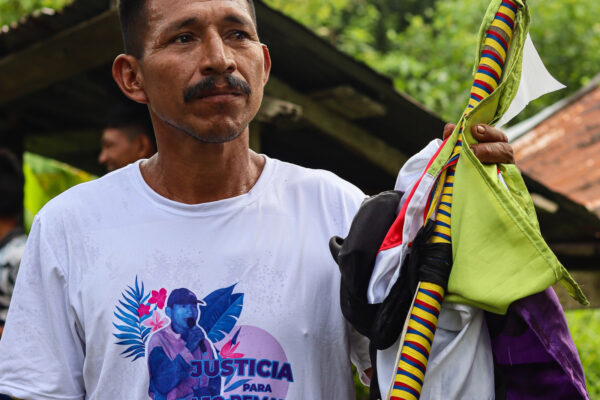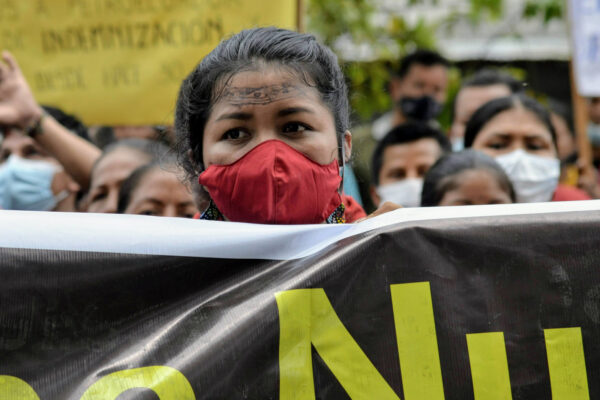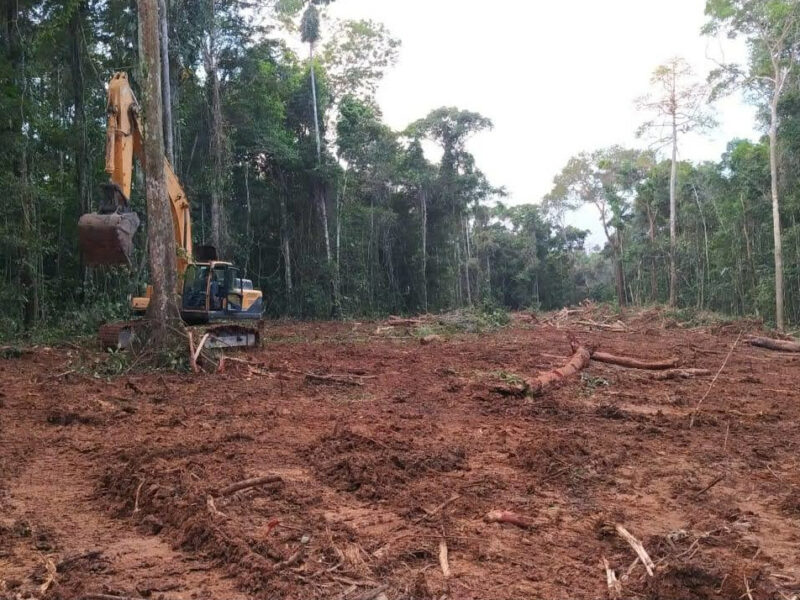Indigenous communities of the Ecuadorian Amazon are facing considerable threats to their territorial integrity from the Chinese-owned Andes Petroleum. This puts them once again on the front line to preserve the Amazon on which the international community depends in its battle with climate change. Their resistance is inspiring and sees them pitted against some extremely powerful interests, but by employing an internationalist approach with partners drawn from across the world they have had some remarkable successes over recent years.
In the wake of the recently ratified Paris climate change agreement, which gives formal recognition to forests, and with the increased drive to enhance conservation efforts through the REDD+ (Reducing Emissions from Deforestation and Forest Degradation) mechanism, it is becoming increasingly clear that the efforts of those at the front lines resisting the detrimental effects of the global reliance on fossil fuels need to be recognised and their voices included to a much greater extent within the debate.
In spite of their frequent exclusion from the debate, indigenous communities are proposing innovative solutions to the international community regarding environmental protection and climate change. Most notably the community of Sarayaku have presented the “Kawsak Sacha” or “Living Forest” proposal at COP 21, which argues for a “shift from a modernizing model of development – a model that treats nature as material resource – to the alternative of Kawsak Sacha”, which treats “the economic system as an ecological web; the natural world as also a social world.”
The motivation to share their belief systems with the world is also held by the President and Spiritual Leader of the Sapara nation, Manari Ushigua. Manari has taken an active role in building a relationship with the international community through the “Naku project”, a community-lead initiative inviting people to visit and stay with the Sapara to experience first-hand the spiritual relationship with nature and ceremonies that are carried out to facilitate this profound connection with the natural environment. He explained that “the Naku project is to get to know whether this forest is alive or dead and, more than anything, explaining how the indigenous communities, in general all the cultures, connect with the spiritual world”. It is understood that the more thoroughly they are able to communicate their beliefs and relationship with the forest the better chance there is of enacting the necessary change at the national and global level. The revenue generated through this project facilitates the participation of community leaders in vital international forums on indigenous rights and the Inter-American Court of Human rights.
These indigenous communities have also been building their international presence in ever more creative ways, constructing and transporting a thirty-foot Amazonian canoe to COP21, which was sailed down the river Seine by Sarayaku delegates. Most recently these communities have collaborated with the independent documentary film Reimagining Progress – Voices from the Ecuadorian Amazon which offers an in-depth exploration of the current critical situation faced by these communities as well as looking at the powerful and vital messages they want to share with the world. A particular focus will be given to the inspirational role that indigenous women are playing in the resistance both on the ground in Ecuador and internationally, with extensive interviews with leaders such as Gloria Ushigua, from the Association of Sapara Women, who recently presented at the United Nations Permanent Forum on Indigenous Issues.
Having been consistently marginalised and ignored, there has been some recent positive progress at the IUCN Congress (International Union for the Conservation of Nature) earlier this month, where Sarayaku were presenting the living forest proposal, with the member’s assembly creating a new membership category for indigenous peoples. Aroha Te Pareake Mead, Chair of IUCN’s Commission on Environmental, Economic and Social Policy (CEESP) expressed the significance of this development asserting that “For Indigenous peoples this provides an unprecedented opportunity to contribute to global policy on biocultural conservation, indigenous issues, traditional knowledge and the future direction of conservation as distinct peoples.”
Furthermore, developments can be seen in other parts of the world such as New Zealand where the government has drawn on indigenous principals to grant the Urewera national park territorial integrity, which now exists as “a legal entity, and has all the rights, powers, duties, and liabilities of a legal person”.
It is without doubt that there is an urgent necessity to design and implement far-reaching conservation policies to protect the world´s forests in order to mitigate against climate change. Indigenous communities are at the forefront of environmental protection whilst also reaching out to cooperate with those globally who see the importance of their struggle, however, the extent to which the international community is prepared to genuinely listen and implement their ideas through environmental and conservationist policy remains to be seen.
To learn more about the issues and communities featured in this article please visit the “Re-Imagining Progress – Voices from the Ecuadorian Amazon” film website and crowdfunding page where you can find information on the film in full as well as a trailer.













